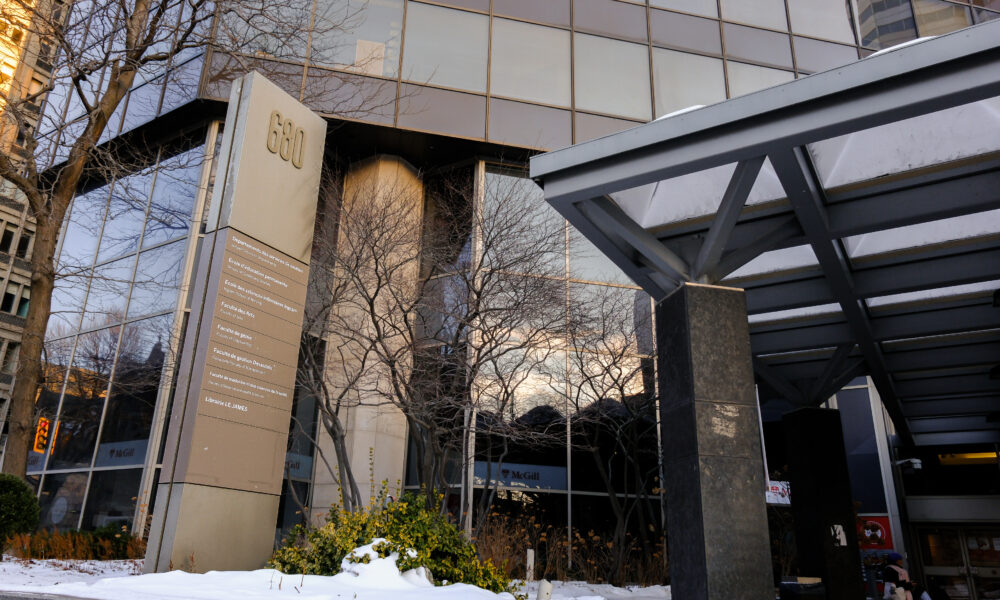In a less than 60-day process, on Dec. 31, Quebec’s Tribunal Administratif du Travail certified the Association of McGill Academic Staff of the School of Continuing Studies (AMASCS), forging the fourth faculty union at McGill. The School of Continuing Studies (SCS) marks the first faculty to bid for unionization following a Memorandum of Understanding (MoU) from Oct. 6 between McGill and the university’s inaugural union, the Association of McGill Professors of Law (AMPL).
The MoU brought an end to over 13 weeks of AMPL strikes which delayed the start of the law faculty’s Fall term by over a month. In return, McGill dropped its contestation efforts of AMPL’s certification and abandoned efforts to block the certification of two other faculty unions—the Association of McGill Professors of Education (AMPE) and the Association of McGill Professors of the Faculty of Arts (AMPFA).
Another central aspect of the MoU was the agreement to form a confederation for collective bargaining between faculty unions and McGill. According to the McGill Media Relations Office, the confederation would “establish a grouping of unions to negotiate university-wide working conditions for instructors.” Under this system, faculty-specific issues would be negotiated with individual unions, whereas broader issues would be negotiated across the entire confederation.
Talks to unionize in the SCS emerged in October, explained AMASCS interim Vice President Margaret Levey, and quickly progressed with a supermajority of academic staff in the school signing membership cards. The union applied for certification on Nov. 15.
In 2021, SCS underwent organizational restructuring “to strike a balance between adaptability and flexibility on the one hand, and stability and consistency on the other,” Carola Weil, Dean of Continuing Studies, wrote in a proposal to the McGill Senate. According to the proposal, these changes were preceded by extensive community consultation. However, Levey and her colleague John Gradek claimed that not only was there minimal consultation, but also that the restructuring added undue layers of bureaucracy which have posed challenges to faculty in the school.
“We are not Arts, we are not Science, we are not Management, we are not Engineering. We are a School of Continuing Studies,” Gradek said. “And to me, that moniker means that we are there to be an extension of what the McGill brand ought to look like [….] What we see happening is that there’s been a strong push, in my opinion, by the current leadership of the School of Continuing Studies to be considered a faculty and with that approach, it’s changed who we are, and it’s changed our mission, and it’s changed how the marketplace sees us.”
Levey told The Tribune that once she and Gradek began discussing the potential of unionization with other faculty members, they found that many of their colleagues faced similar challenges.
“It’s hard for one person to say, ‘No, I reject this as part of my mandate.’ But collectively, if we were all reject it as part of our mandate, then that has a certain weight to it,” Levey said.
Between the restructuring, federal and provincial restrictions on immigration, and McGill’s projected upcoming financial deficit, AMASCS organizers felt it was crucial to have a seat at the table in discussing the future of the school.
“[I felt like] we’re in danger if we don’t actually […] push back and say, ‘No, we have the right to be involved in this. We’re going to negotiate the right to be involved in the division of the school.’ If we don’t do that, I don’t think we’re going to survive,” Levey said.
Before the confederation can begin negotiating collective agreements with McGill, it must determine a democratic voting system and which subject matters will be negotiated across the unions. AMPL Vice President Kirsten Anker welcomed AMASCS, expressing that the lack of contestation from McGill marks a shift in labour relations at the university.
“The effect of our strike in the fall was to change the culture of faculty unionization at McGill. We’re seeing that it’s quickly led to certification of three other unions and we expect that that’s going to continue,” Anker said. “[We’re] just very happy that this is a significant change of union culture at McGill.”
To Gradek, the lack of contestation from McGill is not necessarily a change in attitude toward unionization efforts but rather a recognition of their existence.
“I think the university has come to the conclusion that […] unionization of its academic staff is inevitable. It’s not worth fighting because it’s going to be [futile].”










